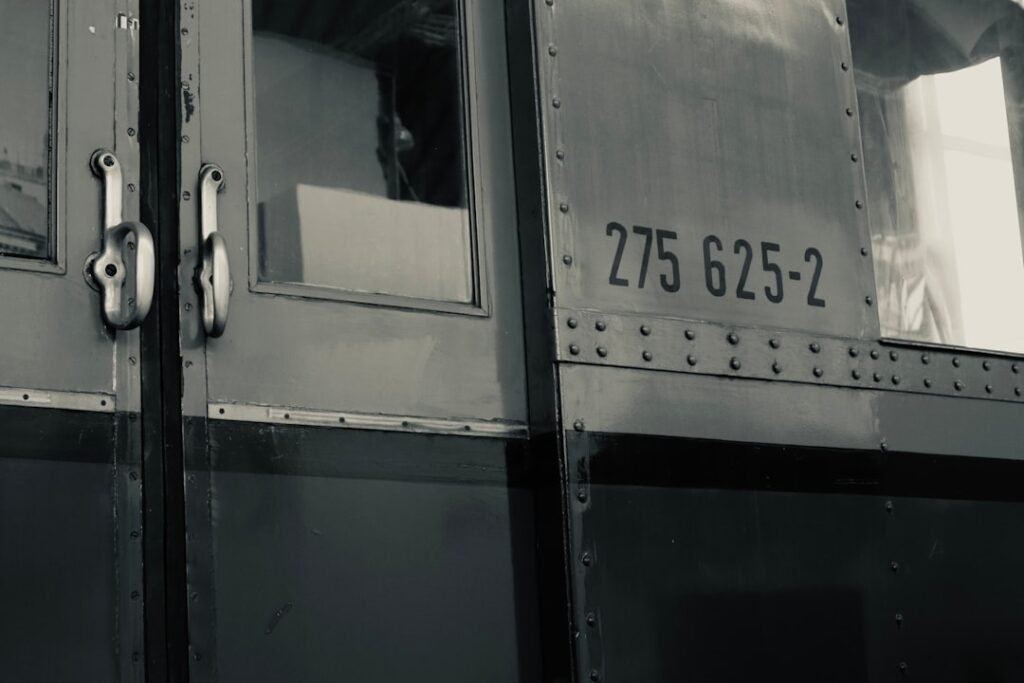Now Reading: Rethinking Death: Time for a New Approach
-
01
Rethinking Death: Time for a New Approach
Rethinking Death: Time for a New Approach

In contemporary society, death is often treated as a taboo subject, shrouded in silence and discomfort. I find it fascinating how we tend to avoid discussions about mortality, as if acknowledging it might somehow hasten its arrival. The current approach to death is largely characterized by a medicalized perspective, where the focus is on prolonging life at all costs.
This often leads to a situation where individuals are kept alive through aggressive treatments, even when the quality of life is severely compromised. I have observed that many people view death as a failure, both personally and medically, which creates an environment where dying is something to be fought against rather than accepted. Moreover, the way we handle death in our society often strips it of its naturalness.
Funerals have become more about the logistics and less about honoring the deceased. I have noticed that many families feel pressured to conform to societal expectations regarding how to grieve or memorialize their loved ones. This can lead to a disconnection from the emotional and spiritual aspects of death, reducing it to a mere event rather than a profound transition.
The current approach often leaves little room for personal expression or cultural practices that honor the unique relationship one has with death.
Key Takeaways
- The current approach to death is often characterized by fear, avoidance, and medicalization.
- Death has a significant cultural and societal impact, influencing rituals, beliefs, and attitudes towards mortality.
- The medicalization of death has led to a focus on prolonging life rather than quality of life, impacting end-of-life experiences.
- Death has a profound psychological and emotional impact on individuals, families, and communities, often leading to grief and bereavement.
- Rethinking death from a holistic perspective involves embracing it as a natural part of life and creating meaningful end-of-life experiences.
The Cultural and Societal Impact of Death
The cultural and societal impact of death is profound and multifaceted. I have come to realize that different cultures have their own rituals and beliefs surrounding death, which shape how individuals and communities cope with loss. In some cultures, death is celebrated as a transition to another life, while in others, it is viewed with sorrow and mourning.
This diversity in perspectives has taught me that there is no singular way to approach death; rather, it is a deeply personal experience influenced by cultural narratives. In my observations, the societal impact of death extends beyond individual grief; it affects communities and social structures as well. When a prominent figure passes away, for instance, it can lead to collective mourning that unites people in shared sorrow.
Conversely, the loss of a community member can create ripples of grief that affect social cohesion. I have seen how communities come together to support one another during times of loss, reinforcing bonds and fostering resilience. This interconnectedness highlights the importance of recognizing death not just as an individual experience but as a communal one that shapes our collective identity.
The Medicalization of Death

The medicalization of death has transformed how we perceive and experience the end of life. I often reflect on how advancements in medicine have led to remarkable improvements in healthcare, yet they have also contributed to a culture that prioritizes treatment over comfort. In many cases, I have witnessed patients undergoing extensive medical interventions that prolong life but do little to enhance its quality.
This focus on medical solutions can overshadow the emotional and spiritual needs of individuals facing terminal illnesses. Furthermore, the medicalization of death can create a disconnect between patients and their families. I have seen families struggle to navigate complex medical jargon and treatment options, often feeling overwhelmed by the choices presented to them.
This can lead to a sense of helplessness and confusion during an already challenging time. It is essential to recognize that while medicine plays a crucial role in managing physical symptoms, it should not overshadow the importance of holistic care that addresses emotional and spiritual well-being.
The Psychological and Emotional Impact of Death
The psychological and emotional impact of death is profound and often underestimated. Personally, I have experienced the waves of grief that accompany losing someone close to me, and I understand how deeply it can affect one’s mental health. Grief is not a linear process; it ebbs and flows, manifesting in various ways—sadness, anger, confusion, and even relief.
I have learned that acknowledging these emotions is crucial for healing, yet society often encourages us to suppress them in favor of maintaining a brave face. Moreover, the emotional toll of death extends beyond the immediate loss. I have observed how unresolved grief can linger for years, affecting relationships and overall well-being.
The stigma surrounding grief can make individuals feel isolated in their sorrow, leading them to believe they must navigate their feelings alone. It is essential for us to create spaces where people can openly discuss their grief without fear of judgment or misunderstanding. By fostering an environment that encourages emotional expression, we can help individuals process their feelings more effectively.
Rethinking Death: A Holistic Perspective
Rethinking death from a holistic perspective involves recognizing the interconnectedness of physical, emotional, and spiritual aspects of dying. I believe that embracing this holistic view allows us to approach death with greater compassion and understanding. It encourages us to consider not only the medical needs of individuals but also their emotional and spiritual well-being during this critical time.
I have found that when we acknowledge the whole person—body, mind, and spirit—we can create more meaningful end-of-life experiences. In my journey toward understanding death holistically, I have come across various practices that promote this perspective. For instance, incorporating mindfulness and meditation into end-of-life care can help individuals find peace amidst the chaos of dying.
Additionally, engaging in conversations about legacy and meaning can empower individuals to reflect on their lives and what they wish to leave behind. By embracing a holistic approach to death, we can foster an environment where individuals feel supported in their journey toward acceptance.
Embracing Death as a Natural Part of Life

Embracing death as a natural part of life is a transformative mindset that can significantly alter our relationship with mortality. I have come to appreciate that death is not an endpoint but rather a continuation of the cycle of life. By recognizing this interconnectedness, I find solace in understanding that every beginning has an end, and every end paves the way for new beginnings.
This perspective allows me to approach death with curiosity rather than fear. In my exploration of this mindset, I have discovered that embracing death can lead to a deeper appreciation for life itself. When I acknowledge the impermanence of existence, I am reminded to cherish each moment and cultivate meaningful connections with those around me.
This shift in perspective encourages me to live more fully and authentically, knowing that my time is limited. By embracing death as a natural part of life, I am empowered to make choices that align with my values and priorities.
Creating Meaningful End-of-Life Experiences
Creating meaningful end-of-life experiences requires intentionality and thoughtfulness. I believe that every individual deserves a dignified farewell that reflects their unique journey and values. In my observations, many people find comfort in personalizing their end-of-life experiences through rituals, storytelling, or legacy projects.
These practices not only honor the individual but also provide an opportunity for loved ones to connect and share memories. I have also learned that open communication plays a vital role in creating meaningful end-of-life experiences. Encouraging individuals to express their wishes regarding their final days can lead to more fulfilling outcomes for both patients and families.
By discussing preferences for care, rituals, and memorialization openly, we can ensure that the end-of-life experience aligns with the individual’s desires while also fostering connection among family members.
The Role of Palliative Care and Hospice in Rethinking Death
Palliative care and hospice services play a crucial role in rethinking our approach to death by prioritizing comfort and quality of life over aggressive treatments. I have witnessed firsthand how these services provide invaluable support not only for patients but also for their families during challenging times. Palliative care focuses on alleviating suffering through symptom management while addressing emotional and spiritual needs—an approach that resonates deeply with my belief in holistic care.
Hospice care takes this philosophy further by providing comprehensive support for individuals nearing the end of life. In my experience, hospice teams offer compassionate care that respects the wishes of patients while ensuring they are surrounded by loved ones in their final days. This model challenges the traditional medicalized view of dying by emphasizing dignity and comfort over curative measures.
By embracing palliative care and hospice services, we can foster an environment where individuals feel supported throughout their journey toward death.
Redefining Grief and Bereavement
Redefining grief and bereavement involves recognizing that these experiences are deeply personal and unique to each individual. I have come to understand that there is no “right” way to grieve; rather, it is a complex process influenced by various factors such as culture, personality, and relationship dynamics. In my own journey through grief, I have learned that allowing myself to feel a range of emotions—joy, sadness, anger—has been essential for healing.
Moreover, redefining grief means acknowledging that it does not adhere to a specific timeline or set of stages. I have observed how societal expectations often pressure individuals to “move on” after a certain period, which can lead to feelings of guilt or inadequacy for those still processing their loss. By embracing a more fluid understanding of grief, we can create spaces where individuals feel validated in their experiences without judgment or pressure to conform.
The Importance of Advance Care Planning and End-of-Life Decision Making
Advance care planning is an essential aspect of preparing for end-of-life decisions that often goes overlooked in our society. I believe that having open conversations about preferences for medical treatment and care can alleviate stress for both patients and families during difficult times. In my experience, discussing these topics early on allows individuals to articulate their values and wishes clearly, ensuring they receive care aligned with their desires.
End-of-life decision-making should be approached with sensitivity and respect for individual autonomy. I have seen how empowering individuals to make informed choices about their care fosters a sense of control during an otherwise uncertain time. By prioritizing advance care planning, we can create an environment where individuals feel supported in making decisions that reflect their values while also easing the burden on loved ones who may otherwise struggle with difficult choices.
Shifting the Narrative: Promoting Conversations about Death and Dying
Shifting the narrative around death involves promoting open conversations about mortality in our communities. I believe that fostering dialogue about dying can help demystify the subject and reduce the stigma associated with it. In my observations, when people feel comfortable discussing death openly, they are more likely to engage in meaningful conversations about their wishes for end-of-life care.
I have found that storytelling plays a powerful role in shifting perceptions about death. Sharing personal experiences with loss can create connections among individuals who may feel isolated in their grief or fear surrounding mortality. By encouraging these conversations within families and communities, we can cultivate an environment where death is viewed as a natural part of life—a topic worthy of exploration rather than avoidance.
In conclusion, rethinking our approach to death requires us to embrace its complexities with compassion and understanding. By acknowledging the cultural impacts, psychological effects, and holistic perspectives surrounding mortality, we can create meaningful end-of-life experiences that honor individual journeys while fostering connection among loved ones. Through open conversations about death and dying, we can shift societal narratives toward acceptance rather than fear—ultimately enriching our lives as we navigate this inevitable part of existence together.
In a related article discussing ways to maximize gaming performance on your phone, the importance of reinventing death mechanics is highlighted. By improving the way players experience death in games, developers can enhance the overall gaming experience and help players achieve better results. To learn more about optimizing your gaming performance on mobile devices, check out this article.



























